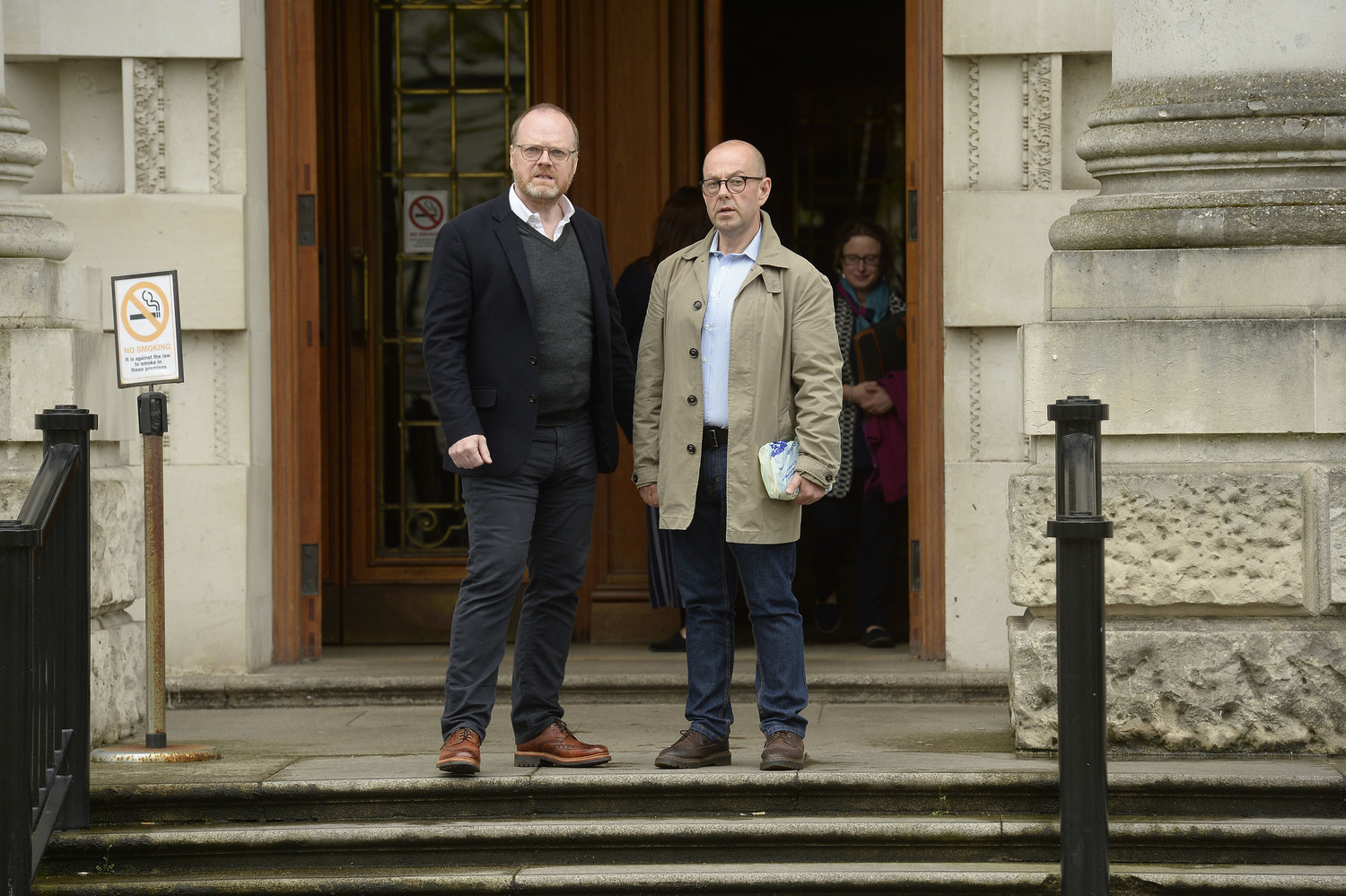Press Release
Wednesday 24 September 2025
Following the publication of the McCullough Review today, Belfast journalists Trevor Birney and Barry McCaffrey have thanked Angus McCullough KC for doing his best to find out how much the PSNI have been spying on journalists and lawyers.
They have also expressed grave concerns that state surveillance of journalists and lawyers has become “normalised” in Northern Ireland.
The review was ordered by the PSNI Chief Constable Jon Boutcher. Angus McCullough KC carried out the review and concluded he “found no basis for concerns that PSNI surveillance of journalists or lawyers is widespread or systemic.”
The review concedes there have been “some specific incidents” where there has been a failure to comply with the relevant legal provisions, but the report states that McCullough found “no basis for any suggestion that the powers available to PSNI are being routinely abused in relation to journalists, lawyers,”
Trevor Birney said: “We would question the claim that the powers available to the police have not been routinely abused. We were arrested in 2018 for making the film No Stone Unturned."
The arrests were found to be unlawful by the High Court in Belfast in 2019. In 2024, the Investigatory Powers Tribunal in London found the police had acted unlawfully because they put me and Barry under direct and electronic surveillance in an attempt to identify our sources.
“Our case has all the hallmarks of routine abuse by the police, and we are not the only journalists that have been put under unlawful surveillance. We are concerned that there has been an attempt to normalise state surveillance in Northern Ireland.”
The McCullough Review shows the PSNI failed to abide by the commitments they made to the High Court in Belfast to delete data they had taken from the electronic devices of Trevor Birney and Barry McCaffrey in 20183.
The review also shows that the PSNI failed to disclose the extent of phone surveillance of Barry McCaffrey in 2013 to the Investigatory Powers Tribunal.
Barry McCaffrey said: “We have been told time and again that the police have disclosed all the relevant information about our case and there is nothing more to see. Yet today we find out there is more to see. The McCullough Review shows the PSNI have repeatedly misled the courts in Belfast and London. We are dismayed the PSNI have disrespected the court orders and have failed to notify the Investigatory Powers Commissioner’s Office (IPCO) of their unlawful misconduct."
“We have spent many years searching for truth and justice for the Loughinisland families. Six civilians were murdered while watching a football match in a pub in 1994. Our film told the story of the victims and their families. It also examined the police investigation into the murders. To this day no one has ever been charged for the murders, and the police came after us for many years.
“We still remain committed to telling the truth about what happened at Loughinisland, and we still must raise the alarm about press freedom in Northern Ireland.”
The McCullough Review contains shocking new details of a secret register of journalists’ and newspapers’ telephone numbers that was maintained by the PSNI “for future analysis”. This register contained over 3,100 lines of spreadsheet data - phone numbers and email addresses - covering well over 1,000 individual journalists, lawyers, and media organisations. The report states: “On a rough estimate there would appear to be well over 1,000 individuals and organisations listed.”
According to the review, the targeting and tracking of the media was “so widespread that any individual journalist working in Northern Ireland was quite likely to be on the list used for the check against PSNI communications systems.” This tactic has been previously described as a “defensive operation”. In the review, this same tactic has been labelled as “washing through”. McCullough states: “…this practice does not appear to have been necessary or proportionate, or indeed compatible with the rights of journalists”.
The McCullough Review further states: “I am relieved to find that the practice has been discontinued, not having been used since March 2023 and formally ended in May 2024. The steps in place to ensure no recurrence seem to me to be appropriate, although are yet to be formalised.”
Trevor Birney said: “These disturbing policing tactics have only come to light because of the disclosures linked to our case at the Investigatory Powers Tribunal. We are pleased to hear this police operation that has been tracking and targeting the media will now come to an end.”
The review confirms:
• The 2024 PSNI report to the Policing Board found no use of direct surveillance targeting journalists and lawyers. The review out today confirms this was inaccurate and there has been seven direct surveillance applications.
• The 2024 PSNI report to the Policing Board found 10 secret police authorisations to access journalists’ communications data with the intent to identify journalistic sources. The review published today found 21 authorised applications, 20 of these have been described as unlawful and they involved seven journalists.
• The review reveals 10 cases currently at the Investigatory Powers Tribunals. These involve four lawyers, four journalists and two police cases.
• Six more journalists victims of unlawful conduct have been notified.
• There has been the use of covert human intelligence sources (CHIS - covert agents) to attempt to discover journalists' sources.
• Lawyers have been spied on in court buildings
Barry McCaffrey said: “We want to thank Angus McCullough KC as today’s review is a stepping stone taking us further towards the truth, but the price paid has been the erosion of press freedom and public accountability. The review sets out an astonishing number of new cases of unlawful police surveillance and we could now end up seeing more and more information come out at the Investigatory Powers Tribunal. This has the potential to become one of the biggest surveillance scandals in recent UK history."
